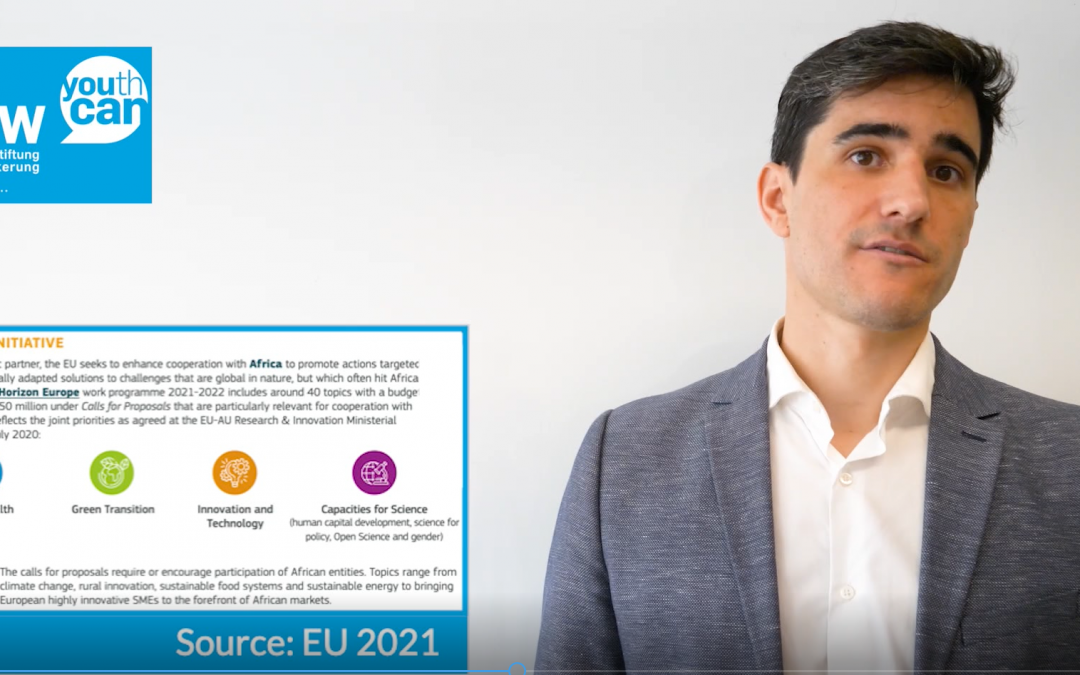“DSW Explains” is a video series in which DSW’s EU team explores some of the key EU policies related to global health R&D and sexual and reproductive health and rights (SRHR) in a short and accessible way. In the 3rd episode of the series, our Senior Advocacy Officer, EU Agustín Martín Lasanta talks about EU-Africa cooperation against epidemics, looking both at the challenges posed by poverty-related neglected diseases (PRNDs) while also highlighting some of the opportunities that research in this field offers to fight ongoing and future epidemics.
With the EDCTP entering its third phase, the announcement of the European Health Emergency Preparedness and Response Authority (HERA), and the next AU-EU summit happening in February 2022, new possibilities lay ahead for the cooperation between the EU and Africa in the area of global health R&D.
EU-Africa cooperation against epidemics: lessons learned from COVID-19
Poverty-related and neglected infectious diseases such as HIV/AIDS, malaria, tuberculosis, pneumonia or cholera are a major cause of death in Africa.
Six million Africans die each year from these diseases. Five hundred million also suffer from neglected tropical diseases, such as leprosy, dengue fever, sleeping sickness, leishmaniasis or schistosomiasis.
Emerging diseases such as ebola also cause huge economic and health problems. It is estimated that the 2014 outbreak in west Africa cost close to three billion euros in damages. Most of these diseases lack effective treatment today.
Infectious diseases know no borders. The only way for Africa and the European Union to prevent and respond to epidemic outbreaks is to work closely together.
How do Africa and the EU tackle these challenges?
Cooperation on epidemic preparedness happens in three main areas. First, research and development innovation, for example, through the flagship European and Developing Countries Clinical Trials Partnership, or EDCTP, and the new Africa Initiative in Horizon Europe.
Second, through development cooperation and humanitarian aid, especially to support health systems, for example via the Africa-EU partnership on epidemic preparedness.
Third, through a mix of loans and investment to support manufacturing, access to vaccines, medicines and other health technologies, and sustainable health care.
How can EU-Africa cooperation be improved?
The EDCTP is crucial. We have seen how research on HIV vaccines helped support COVID-19 vaccines, while tuberculosis and ebola tests were repurposed to detect the virus. The proposed European Health Emergency Preparedness and Response Authority – or HERA – could also play a vital role, if it is given the mandate to cooperate globally and support Africa.
Finally, the next African Union-European Union summit, expected in early 2022, could create additional political momentum to take cooperation to the next level.
COVID-19 has shown us that nobody is safe until everybody is safe. It has also highlighted the unfair and unequal imbalance in access to life-saving technologies in Africa. The European Union-Africa cooperation can and must address this imbalance, putting health at the heart of a renewed partnership.

